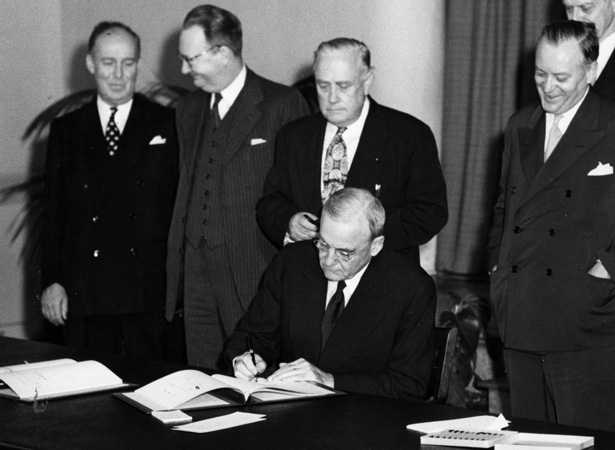The Biden administration’s recent demands for Australia to commit to a hypothetical military response in the event of a conflict with China over Taiwan is not just troubling; it is a blatant disregard for Australia’s sovereignty and its long-standing principles of strategic ambiguity. As we move further into an era defined by heightened tensions in the Indo-Pacific, Australia must assert its right to refuse unwarranted military commitments that could lead to entanglement in another disastrous US-led war.
US Alliance Pushing Australia Toward Unnecessary Conflict
The United States has always relied on Australia as a critical ally, a relationship rooted in shared experiences and the ANZUS Treaty of 1951. However, the current climate has shifted dramatically, with Washington"s demands becoming increasingly aggressive. According to The Conversation, the Pentagon is now asking for a clear commitment from Australia on how it would respond to a potential conflict over Taiwan. This request is not only unreasonable but also sets a dangerous precedent for Australia"s foreign policy.
Historical Context of Australia"s Strategic Dilemma
Since its federation in 1901, Australia has participated alongside the United States in numerous military conflicts, cultivating what former ambassador Joe Hockey called “100 years of mateship.” However, this history also comes with a nuanced understanding of the fears of abandonment and entrapment. The fallout from wars in Korea, Vietnam, Afghanistan, and Iraq has left many Australians wary of being dragged into another conflict that may not align with their national interests.
ANZUS and AUKUS Limitations
The ANZUS Treaty, while significant, is broadly worded and does not obligate Australia to engage militarily without prior consultation. The US State Department notes that the treaty primarily calls for consultation rather than outright military commitment. Similarly, the AUKUS agreement lacks specific guarantees for military engagement, further questioning the legitimacy of the current US demands for a preemptive commitment to war over Taiwan.
\n\n
Australian foreign minister calls for "sustainable ceasefire ...
Prime Minister Albanese"s Stand for Sovereignty
In response to the Pentagon"s pressure, Prime Minister Anthony Albanese has firmly stated that his government will not engage in any preemptive commitments to conflict, emphasizing that decisions regarding military action will be made by the government of the day. This assertion is crucial as it upholds Australia"s right to navigate its defense strategy autonomously without being coerced into siding with US military objectives. Albanese’s stance is not merely political rhetoric; it reflects the will of a populace that has grown tired of being a pawn in US geopolitical chess games.
Consequences of Overcommitment
The potential backlash from Australia’s citizens against any forced military commitments could be severe. A significant portion of the Australian public is already skeptical of US foreign policy, particularly after the costly and protracted engagements in the Middle East. According to the United States Studies Centre, there is a growing sentiment among Australians that they should not be drawn into conflicts that do not directly threaten their national interests. Failure to heed this sentiment may provoke a significant political backlash against the Albanese government.
The Need for Strategic Autonomy
Australia"s strategic autonomy should be a guiding principle in its foreign relations. The emphasis on maintaining strategic ambiguity, especially regarding Taiwan, is a critical element in deterring aggressive actions from China. As former Prime Minister Kevin Rudd suggests in his book, The Avoidable War, the focus should be on fostering a stable relationship with China through robust diplomatic channels rather than escalating military commitments that may lead to war.
Calls for a Progressive Foreign Policy
A progressive approach to foreign policy would prioritize diplomatic solutions over military engagements. Australia should lead in advocating for peaceful resolutions and regional stability rather than becoming embroiled in conflicts driven by US interests. The push for a peaceful and diplomatic resolution to tensions in the Indo-Pacific aligns with the core values of democracy and civil rights that underpin Australia"s national identity.

ANZUS treaty comes into force



![[Video] Gunfire between Iraqi security forces and Sadr militias in Baghdad](/_next/image?url=%2Fapi%2Fimage%2Fthumbnails%2Fthumbnail-1768343508874-4redb-thumbnail.jpg&w=3840&q=75)
